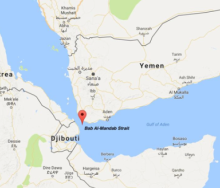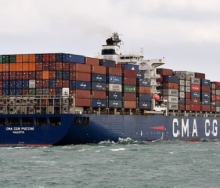Transnet needs to collaborate more with business to improve port and rail efficiency in order to open up the country’s already $10-billion booming agricultural export sector.
Agbiz chief economist Wandile Sihlobo made the call in his latest blog on the state of the country’s agricultural sector, its need for improved transport services to get goods to market, and farmers’ strong appetite to grow exports to markets in the Middle East and Far East.
He said he had gleaned his latest insights when he visited agribusiness owners across the country late in 2021.
“Our visits were aimed purely at connecting and understanding business conditions after various waves of the pandemic and the disruptions that followed.
“At the time, the agricultural sector was having a ‘sunshine’ moment, with bumper harvests and higher commodity prices boosting profitability for those farming grains and oilseeds.”
Even the wine producers we met in Paarl were “somewhat optimistic, focusing on rebuilding the industry” following the devastation caused by the bans on alcohol sales, Sihlobo said.
“Conversations focused on sustainably growing the agricultural sector and ensuring the vibrancy of rural economies.
“These noble goals align well with the government’s vision, which we had been championing through the Agriculture and Agro-processing Master Plan,” he said.
The plan aims to create a competitive and inclusive agricultural economy, expand the area under cultivation, and create more jobs in various commodities.
Sihlobo said farmers had expressed their dire need for the government to improve network industries, mainly roads, rail and shipping ports.
The recent rains had caused serious damage to the already poor quality of roads in some regions, he added.
“Agribusinesses in the Eastern Cape and Free State told stories of the rising costs they have to incur on road improvements and maintenance of their equipment due to bad roads infrastructure,” he said.
For smallholder farmers it was even more challenging to connect, cost efficiently, with their markets.
“The government has to pay attention to deteriorating infrastructure,” Sihlobo said.
Finance Minister Tito Mboweni reported in May 2021 that of the 278 municipalities in SA, 163 were in financial distress, 40 were battling to deliver basic services, and 102 had adopted budgets for 2021/2022 that they could not fund.
Sihlobo said the result of this poor municipal performance was that businesses were forced to invest in performing services that municipalities should be delivering.
He added that farmers were also crucially dependent on the country’s ports for their export growth strategy. However, congestion was a challenge.
“In 2021, at the peak of the citrus harvest and export season, congestion at the port of Durban and problematic Transnet infrastructure were major challenges for the industry.
“Still, collaboration among all role players ensured a continuous flow of exports.”
He said that this cooperation had ensured SA’s agriculture, food and beverage exports for the first three quarters of 2021 had reached $9.6bn (R149.6bn), up 23% on the same period in 2020.
“The full-year data will most likely show generally good performance for 2021. The ample agricultural harvest was the main boost for exports.”
However, he said infrastructure destruction to the rail system posed a risk to agriculture and other export-orientated sectors.
“The government should increase the security focus on the vandalising of Transnet infrastructure. Collaboration between business and Transnet in investing in ports should also be prioritised.”
He said trade discussions had dominated his discussions with agribusinesses owners.
SA currently exports more than $10 billion in a typical agricultural season under various trade agreements, including the Southern African Development Community (SADC), the SADC-EU economic partnership agreement (EPA), the South African Customs Union (Sacu)/Mozambique-UK EPA, the African Continental Free Trade Area and the Sacu/Mercosur Preferential Trade Agreement.
“The fruit, wine, grains, wool and beef industries have been the key drivers of this export effort. In the past few years, the success of trade also attracted increased investment in agriculture, which has led to expansion, specifically in fruits,” Sihlobo said.
“Agribusinesses and primary agriculture groups would like to increase their access in Japan, China, Saudi Arabia, Bangladesh and India.
“SA has had some success in some of these markets; for example, South African pears can now be exported to China,” he added.
“But we have more fruit in the country, larger wine volumes, and meat.
“At this point, the government, through the Department of Trade, Industry and Competition, along with the Department of Agriculture, Land Reform and Rural Development, should work collaboratively with the industry to urgently open as many markets as possible,” he said.













